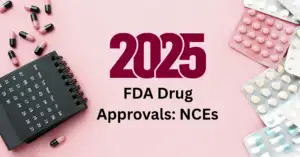Certain pharmaceutical dosage forms need to be supplied as Sterile products. The term Sterile denotes freedom from any viable microorganism. Viable microorganisms are germs that are not visible to the naked eye but can be viewed under a microscope; these can cause infections. Therefore, products, such as injections, eye drops, and saline solutions, are designed to be free from all viable microorganisms. The supply of these products is always in the form of sterile solutions and/or suspensions. Products which are freeze dried products along with the solvent are also sterile. In medical treatments these products are critical and the slightest of contamination can lead to severe infections or other adverse health effects. Hence, Good Manufacturing Practices (GMP) for products that are sterile involve strict measures and controls for ensuring their quality and sterility overall. These procedures include environments under control, proper techniques of sterilization, processes that are validated, and comprehensive examination and testing. GMP adherence guarantees that sterile products are secure and effective for use by patients, thereby preserving the standards of public health at its highest point.
(GMP) for sterile products, including injections, eye drops, and saline, are manufactured by ensuing thorough protocols guaranteeing the highest quality of product. These practices involve maintaining a controlled environment with stringent cleanliness and asepsis standards to prevent contamination. The principles of asepsis and stringent clean rooms and other procedures are applicable to raw materials, container closure systems as well as the active pharmaceutical ingredients. The manufacturing steps are very specific to manufacture sterile pharmaceutical products. Few of the important criteria in sterile dosage form manufacturing are listed below:
- This includes using cleanrooms with HEPA filtration, regular environmental monitoring, and validation of sterilization processes.
- Strict practices of hygiene must be followed by personnels and must dress up in suitable protective clothing.
- Validation of equipment and processes of production should be done, and checked routinely, and maintenance of documentation in detail should be maintained for traceability.
- Furthermore, testing of raw materials strictly, controls in-process, and final testing of products are carried out for ensuring compliance and sterility with regulatory standards.
All the units of therapy such as injections, eye drops etc. required for conduct of clinical trials globally need GMP adherence. Adherence to GMP guidelines helps prevent contamination and ensures production consistency, which is necessary for the product’s quality supplied for clinical trials globally. The quality of the products has a direct impact on patient safety. Regulatory authorities worldwide, such as the FDA and EMA, mandate strict compliance with GMP to approve quality of study medicines in the global clinical trials. This standardization globally assists collaboration internationally in clinical research, allowing different regions data to be compared and accepted across borders, ultimately accelerating the new therapies development and approval.
GMP for products which are sterile, such as eye drops, injections, and saline, are critical for manufacturers of pharmaceuticals for ensuring the quality, efficacy, and safety of these products. Mandatory strict controls standardized measures are maintained by the GMP guidelines in the manufacturing setting to ensure sterile conditions and prevention of contamination. This involves the usage of rooms that are clean, regular monitoring of the environment, proper techniques of sterilization, and thorough processes of validation. GMP adherence helps pharmaceutical manufacturers obey regulatory requirements, maintain integrity of the product, and protect the health of a patient by decreasing adverse reactions and infection risk. GMP compliance is thus fundamental to the operational and reputational success of pharmaceutical manufacturers creating sterile products.
The principles of (GMP) for sterile products provide several advantages like:
- Ensures Safety of Product: It is ensured by GMP that sterile products like injections, eye drops, and saline are exempt from contaminants, reducing infections risk and patient complications.
- Maintains Efficacy of Product: GMP adherence helps in maintaining the anticipated quality, potency and product’s effectiveness all through their shelf life.
- Regulatory Compliance: Following GMP helps manufacturers comply with regulatory standards as set by authorities of health, avoiding issues legally and ensuring approval in the market.
- Enhances Quality of Product: Standards of GMP confirm processes of production in high-quality, developing reliable and consistent products.
- Protects Health of Public: Health of public is protected by GMP, and trust of consumers is built by warranting that production of sterile products are done under strict conditions of hygiene.
- Reduces Recalls and Waste: GMP adherence lessens errors in production and flaws, reducing the product recall necessity and reducing waste, eventually reduction in costs.
- Efficiency Promotion: GMP nurtures efficient processes of manufacturing, optimizing the use of resources and improving operational productivity overall.
- Supports Improvement Continuously: Regular audits and reviews are encouraged by GMP, nurturing a continuous improvement culture in the practices of manufacturing.
In conclusion, the necessity of (GMP) for sterile products such as injections, eye drops, and saline are crucial for ensuring the quality of the product, efficacy, and safety. These rigorous guidelines pertain to a production’s every aspect, from design of facility and sterilization of equipment to personnel hygiene and severe quality control practices. GMP adherence reduces the contamination risk and guarantees that the final products meet the highest standards required for care of patients, safeguarding health of the public ultimately.





